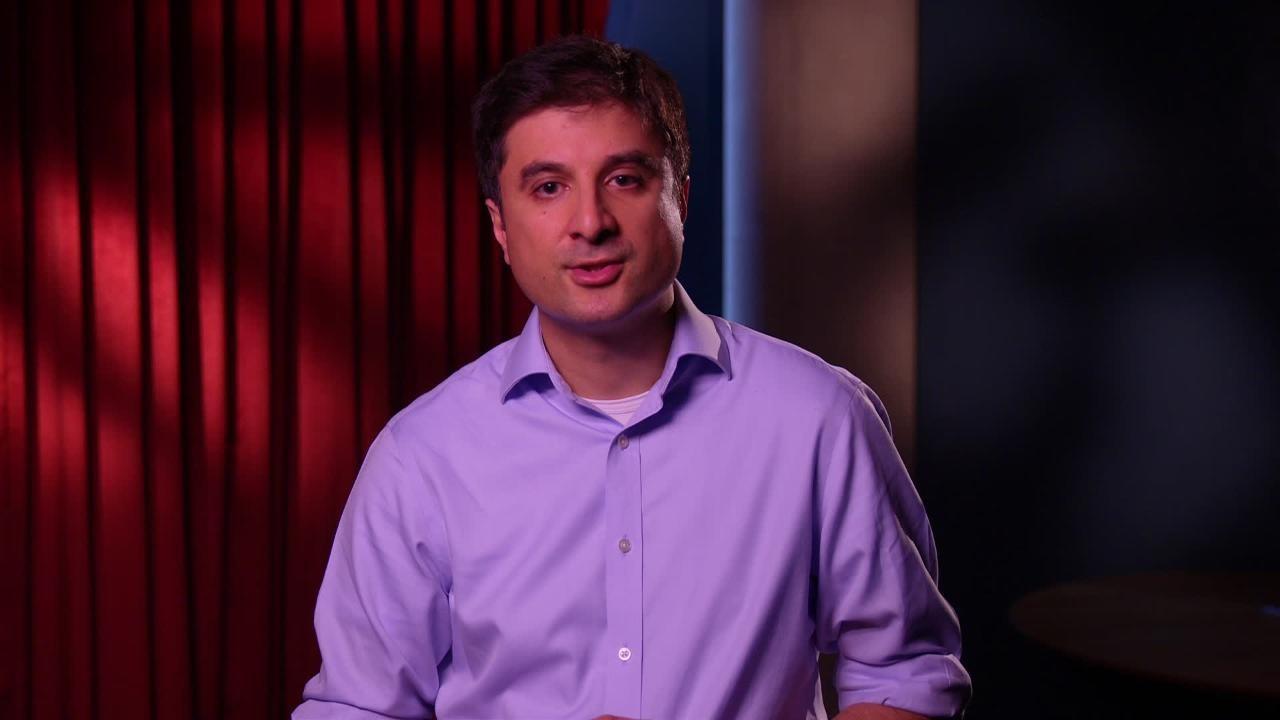
Vídeo: Cómo reducir la tensión arterial
Peer reviewed by Dr Sarah Jarvis MBE, FRCGPLast updated by Dr Yassir Javaid, MRCGPLast updated 2 Nov 2017
- DescargarDescargar
- Compartir
Preguntas frecuentes sobre la tensión arterial, respondidas por nuestros expertos. ¿Por qué es un factor tan importante que contribuye a las enfermedades cardiacas y qué cambios en el estilo de vida puede ser necesario adoptar si la suya es alta?
En este artículo:
Playlist: High Blood Pressure Q&A
4 vídeos
What is considered high blood pressure?
Dr. Yassir Javaid, MRCGP
What is considered high blood pressure?
Dr. Yassir Javaid, MRCGP

How serious is high blood pressure?
Dr. Yassir Javaid, MRCGP

What can you do to lower your blood pressure?
Dr. Yassir Javaid, MRCGP

Can you test your blood pressure at home?
Dr. Yassir Javaid, MRCGP
Seguir leyendo
What is considered high blood pressure?
Dr Yassir Javaid, GP, Cardiology Specialist
To have high blood pressure, your blood pressure needs to be high most of the time. That means a reading of 135/85 mm Hg if you're taking a reading at home, or 140/90 mm Hg if it's done at the surgery. That doesn't necessarily mean you need treatment, unless you have other risk factors such as previously having a heart attack, diabetes or kidney disease.
If your blood pressure is significantly higher than that - so more than 160/100 mm Hg at your GP surgery or 150/95 mm Hg at home - then perhaps we should be considering treatment, even if you don't have any other risk factors. There are lots of things you can do to reduce your blood pressure by adopting a healthy lifestyle and medication on top of that if required.
How serious is high blood pressure?
Dr Yassir Javaid, GP, Cardiology Specialist
High blood pressure can be serious, if it's high most of the time. Having a high one-off blood pressure reading may not be of much concern because we know that blood pressure can fluctuate throughout the day and even between days.
That's why it's so important to check your blood pressure on a daily basis for at least a week, twice a day. And probably twice at each sitting, ignoring that first reading. Having a blood pressure that's high all of the time or an average blood pressure reading of more than 135/85 mm Hg can increase your risk of having a heart attack or a stroke.
Seguir leyendo
What can you do to lower your blood pressure?
Dr Yassir Javaid, GP, Cardiology Specialist
It's really important to lower your blood pressure because having a consistently high blood pressure does increase your risk of serious disease.
Thankfully there are lots of simple things that you can do, like being more active. The advice is to do 30 minutes or exercise per day for around five days to a week, and you can break that down into portions of ten minutes. That will also help with weight loss which is another important thing to address to help lower blood pressure.
In terms of the diet we know that reducing your salt intake to just one teaspoon a day (approximately 6 g) can also really help keep that blood pressure down.
Can you test your blood pressure at home?
Dr Yassir Javaid, GP, Cardiology Specialist
I would strongly encourage taking your blood pressure at home. In fact there is really good evidence that taking your blood pressure at home on a regular basis is a far more accurate reflection of your day-to-day blood pressure than, for instance, having a one-off reading taken at your GP surgery.
Having your blood pressure taken at the surgery is probably the worst time, because you may have waited 30 minutes in a very busy and noisy waiting room, and that anxiety can drive up your blood pressure. So the advice is now to take your blood pressure twice a day for at least a week, twice at each time. Ignore the first reading because it's always going to be high because of the stress of just taking your blood pressure.
Historia del artículo
La información de esta página ha sido revisada por médicos cualificados.
2 Nov 2017 | Latest version

Pregunte, comparta, conecte.
Explore debates, formule preguntas y comparta experiencias sobre cientos de temas de salud.

¿Se encuentra mal?
Evalúe sus síntomas en línea de forma gratuita